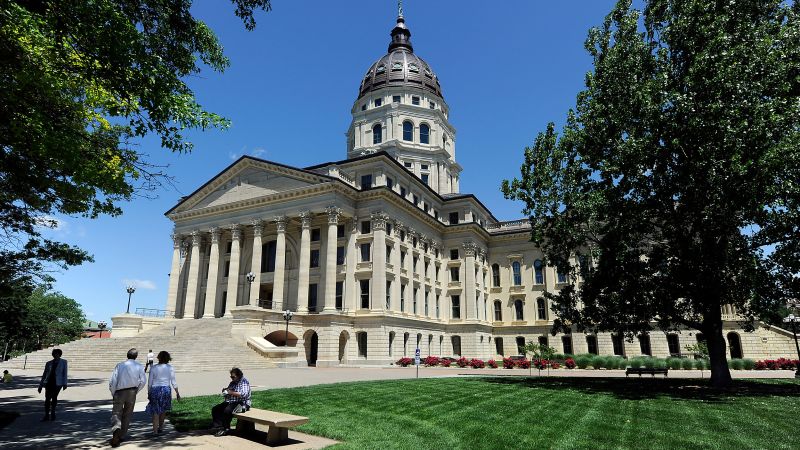Kansas’ Republican-controlled legislature has passed a bill that would ban gender-affirming care for minors, including puberty blockers and surgeries. The Senate voted 27-13 on Wednesday after the House voted 82-39 to advance the measure. The bill now awaits a decision from Democratic Gov. Laura Kelly, who vetoed a similar measure last year. The state Senate passed the bill with a veto-proof majority while the House was two votes shy. The bill also allows civil lawsuits against doctors who provide gender-affirming treatment to minors and prohibits the use of state funds to promote such treatments.
With this measure, Kansas joins at least 20 other states that have moved to curb gender-affirming care for minors. This comes as transgender rights have become a prominent issue for the Republican Party, leading to legal challenges across the country and pressure on the Supreme Court to intervene. Gender-affirming care is considered the standard of care for transgender and nonbinary individuals, with various evidence-based treatments available depending on the age and goals of the recipient. The legislation in Kansas would phase out treatment for any minors currently receiving care, with providers required to demonstrate that stopping care immediately would endanger the child and create a plan to phase out treatment.
The bill also prohibits state employees from recognizing a minor’s preferred pronouns if they do not match the sex assigned at birth and bars the use of state funds, such as Medicaid, for gender-affirming treatments. Kansas Democrats have criticized the measure as an infringement on the rights of transgender individuals, while state Republicans argue that it is a measure to protect children. This legislation is part of a broader effort by the GOP-controlled legislature in Kansas to address transgender rights, following the enactment of an anti-trans sports ban last year. This ban prevents trans women and girls in the state from competing on sports teams consistent with their gender from kindergarten through college.
The bill in Kansas has sparked controversy and divided opinions on how transgender individuals should access healthcare and other rights. Advocates of gender-affirming care argue that it is essential for the well-being and mental health of transgender and nonbinary individuals, while opponents claim that such treatments are harmful and inappropriate for minors. Legal challenges across the country are ongoing, with the issue of transgender rights becoming increasingly politicized. As the debate continues, it remains to be seen how states and the federal government will address the complex issue of gender-affirming care and the rights of transgender individuals.


